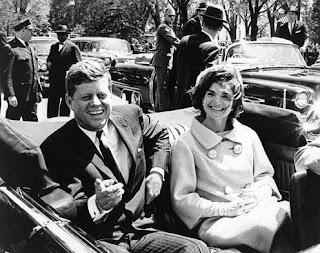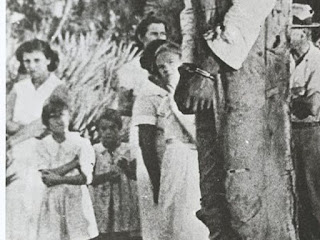"It was the best of times, it was the worst of times, it was the age of wisdom, it was the age of foolishness, it was the epoch of belief, it was the epoch of incredulity, it was the season of Light, it was the season of Darkness, it was the spring of hope, it was the winter of despair, we had everything before us, we had nothing before us, we were all going direct to Heaven, we were all going direct the other way – in short, the period was so far like the present period, that some of its noisiest authorities insisted on its being received, for good or for evil, in the superlative degree of comparison only."
Tale of Two Cities, Dickens
Attention Deficit Disorder can be a blessing.
In Mad Dog's case it means he cannot simply read one book at a time but he reads several, switching back and forth, interspersing with viewing TV shows, reading newspapers, listening to talk radio, so his brain is like an orbiting satellite, constantly bombarded by gamma rays, space junk, random asteroids. And out of this comes a sort of stew of ideas, which occasionally coalesce into a coherent thought, however briefly.
Recently, Mad Dog has read "Before the Deluge," --a book Linda Ronstadt gave Jackson Browne to read in 1974, oddly enough, but that is totally irrelevant to today's blog post, just an interesting random ADD thought--and he's read Michael Lewis's "The Premonition" and he's gone back to watching the fantastic German series, "Babylon Berlin" and he visits Twitter whenever he gets twitchy and he's read "The Great Influenza" about the dysfunctional American response to the influenza pandemic of 1918 which killed more people than all the bombs and bullets of the war which preceded and helped spread it. And he's re-read parts of the Constitution and he's thrown in a little Jill Lepore ("These Truths" and her excellent podcast "The Last Archive.")
And out of this has come a unifying vision, or, one might say, a glimmer of a fever dream.
World War I happened at a time when empires organized the planet in some ways and it spelled the end of some of those empires, the fall of German monarchy, and the winning side were semblances of democracies (America, Britain, France) but that war really did not finish the job; the armistice which ended the military shelling was simply a pause between rounds of fighting, when the fighters returned to their corners to be patched up and watered.
The interregnum from 1918 until 1939 did not much change governments or attitudes in the Allied states--America, France, England went back to business more or less as usual and America held the debt of their allies and of Germany, more or less as the banker controls his debtors.
Germany during these years was by far the most interesting place, as it underwent the greatest changes and faced with the greatest challenges, it did the most interesting thinking and acting. It's monarchy was deposed, and a new Republic emerged, struggled to be born, or as Dylan would say, "It's dying and it's hardly been born."
There was, of course, no one Germany: there was rural (peasant) Germany, the Germany of Berlin and other cities and there were violent divisions between alternatives: Communists (with a stronghold in Berlin), monarchists and fascists.
Berlin during the Weimar Republic (1919-1933) was as much like America today as we have ever seen any other historical analogy: pulsing with great scholars and scientists (Einstein, Heisenberg, Bohr) artists (Kandinsky, Klee, Ballhaus), movie stars (Marlene Dietrich et al), philosophers (Heidegger, Wittgenstein) , writers (Thomas Mann, Eric Maria Remarque) and a cabaret scene which allowed for gay nightclubs and heterosexual free love, paid sex, gender bending. Berlin was magnetic, pulling Isherwood, Auden, a slew of British, American and Russian expatriates. Hemingway and his crowd in Paris had nothing on Berlin.
If Americans know anything about the Weimar Republic's brief life it is the images of people hauling s wheel barrels of nearly worthless Deutschmarks to buy a loaf of bread during the hyperinflation of the early days. But the economy actually stabilized after a few years.
No, what killed the Weimar Republic was structural flaws:
1/ Like any Republic the elected government reflected the flaws in the population which elected it. And most people do not want to live and breathe politics. They want their government to function like their water heaters and automobiles--just turn on; do the job and let me enjoy hot showers, easy transport and live my life.
And the Weimar had an unwieldy structure: A President who appointed a Chancellor, a Reichstag parliament which could be dismissed by the Chancellor any time he did not like the make up of the representatives. Like the American Constitution, its flaws could be exploited. The American Senate, of course, represents not people but territory and borders drawn on maps, so that 40% of the voting citizens in the country claim somewhere between 50-60% of the Senate seats. And the Senate forms the Supreme Court, so 2/3 of the government can be controlled by a 40% minority of the citizens. The resentful rural vote suppresses the 60% urban population which wants a government which functions and which believes in cooperation among people rather than picturing itself as the lone cowboy or the plantation owner.
2/ Deep divisions in belief tore at the cohesion of society: If you have half of the country believing Black people are subhuman and are happy as slaves, you are going to have trouble forming any government which gives voice and form to that belief. In Germany's case, there were those who believed an authoritarian government, with a king/Kaiser would provide reliable law and order and there were Communists who believed government should and could provide for justice, prosperity and spiritual purity and there were the fascists who believed in various things, but ultimately believed in just one thing: Hitler.
Nobody could bring all these oil and water elements together into an emulsified mix, so they got Hitler.
Trump & Company clearly recognized the likeness between Weimar and America today. Trump aped everything from the pouting image of Hitler to his insistence on simplified messages, to his long harangues about how how everyone--except his true believers--is out to get him, to the Big Lie, to the use of scapegoats, to the embrace of fear of the other, white supremacy and the Republic of Anger.
During Weimar there was one phenomenon we have not yet seen in America: assassinations. There were roughly 400 political assassinations during Weimar and of those 400 murders, only about 20 murders were of right wing politicians and those murderers were swiftly punished. But virtually none of the fascist/monarchist murderers of left wing politicians were punished for their acts.
When Hitler finally took over, in 1933, having bene duly elected, he massacred the leadership of the SA faction of the Nazi party, the storm troopers, whose leadership contested Hitler's control of the Nazi party. The SA had 300,000 men under arms, more than twice that of the German army. Hitler purged his rivals in the Party and consolidated his control, much as Mr. Trump is doing now, without the physical murder (yet.)
Reading through "Before the Deluge" and watching "Babylon Berlin" it all looks so familiar. Mad Dog has long thought the Germans, although they speak another language were much more like Americans than the British or the French. Reading "Band of Brothers" and other military memoirs Mad Dog was struck by how often American soldiers commented on their dislike of the French civilians they encountered as they swept across Europe. They liked the Dutch but not the French, except maybe some in Paris, but they liked the Germans, who were apparently more concerned about cleaning up, being tidy and orderly. Well, some soldiers were partial to the Germans; some remarked that they kept running into Germans who insisted "Nicht Nazi"--not Nazi"--and as David Webster said, "It's remarkable: We've been across 500 miles of Germany, countless towns and villages, and we haven't met a single Nazi in Germany yet!"
But, reading about Berlin during the Weimar (1919-1933) the Germans seem so much like us. Anyone who has ever lived for more than a month in England knows the English are not simply Americans who talk funny. They are very different from us. You have to love the Scotts and the Irish, but they are not us, either. The Germans, much more like us. And reading about how they rejected democracy eventually is a little creepy.






































